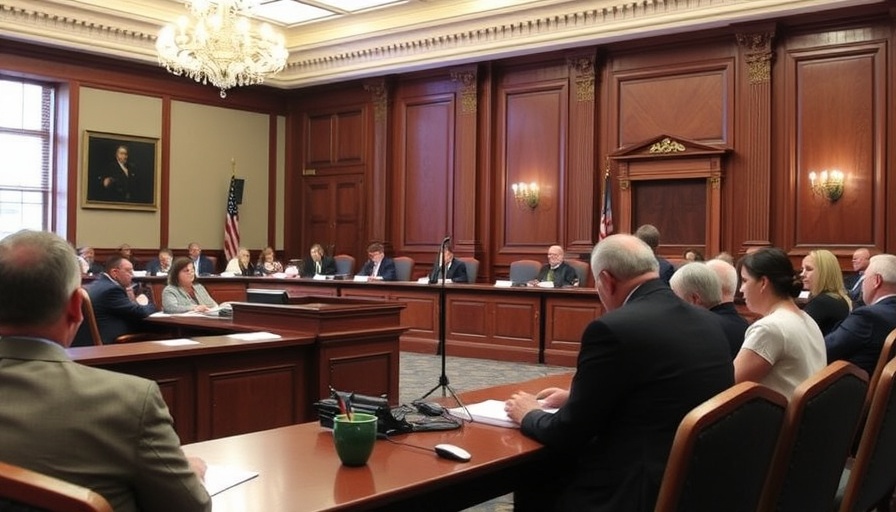
Understanding the Adoption Trap: A Growing Concern in Texas
In Texas, a troubling trend is emerging within the realm of private adoption and foster care agencies that could have lasting implications for vulnerable families. The story of Carmel Swann, a young mother who found herself ensnared in a complex legal situation after giving birth while incarcerated, serves as a cautionary tale. After being advised by a state worker to place her baby with a private agency, Swann believed she was making a safe choice. However, the lack of oversight and regulation in these private placements has left her and many others at risk of losing their children permanently.
Historical Context: The Evolution of Adoption Laws
Historically, adoption has undergone significant changes, evolving from a purely altruistic notion to a multi-billion dollar industry influenced by private entities. In Texas, the complexities around adoption and foster care laws began to shift significantly in the late 20th century, introducing a greater role for private agencies. This change, while intended to improve care options for children, has also created opportunities for exploitation and ambiguity about parental rights.
The Shadow Side of Private Adoption: What It Means for Expecting Mothers
For women like Swann, who face unexpected pregnancies under dire circumstances, the allure of private adoption agencies lies in the promise of immediate care for their children. Yet, as advocates highlight, these agencies often operate in a murky legal framework with minimal accountability. Women embarking on this path can unwittingly relinquish their parental rights without fully understanding the consequences, leading to prolonged custody battles. Attorney conversations reveal a rising anxiety in this sector, with advocates urging for stricter regulations to protect vulnerable mothers.
Current Events: The Impact of Legislation on Adoption Practices
As Texas grapples with restrictive reproductive care laws, the surge in private adoption practices comes at a critical juncture. Pregnant women may find themselves increasingly cornered, feeling the pressure to hand over their children to private agencies. Advocates are warning that this situation may worsen, especially as legislative changes continue to unfold. The path forward could potentially see a drastic increase in custody disputes, fundamentally reshaping how adoption is approached.
Counterarguments: Perspectives on Private Adoption
While many see the rise in private fostering and adoption as exploitive, others argue that it provides necessary alternatives for children in precarious situations. Proponents assert that private agencies can often expedite placements and reduce the burden on state systems. However, balancing the urgency to find homes for children against the risks to vulnerable mothers is a complex challenge that needs ongoing dialogue and legislative attention.
Taking Action: What Can Be Done?
For business leaders and community advocates, understanding these dynamics is crucial. Mobilizing efforts to push for legal reforms, supporting organizations that protect mothers and children, and raising awareness about the nuances of private adoption processes can drive meaningful change. Individuals and leaders can contribute resources to child welfare programs or advocate for improved state oversight of adoption and fostering agencies. By fostering partnerships with local organizations, businesses can also engage in community education efforts that empower vulnerable families.
The narrative surrounding private adoption in Texas is fraught with complications, but through solidarity, informed advocacy, and continued pressure for reform, there exists an opportunity to create a safer environment for all families. Now more than ever, we need to prioritize the voices of mothers and children navigating this complex landscape.
 Add Row
Add Row  Add
Add 




Write A Comment